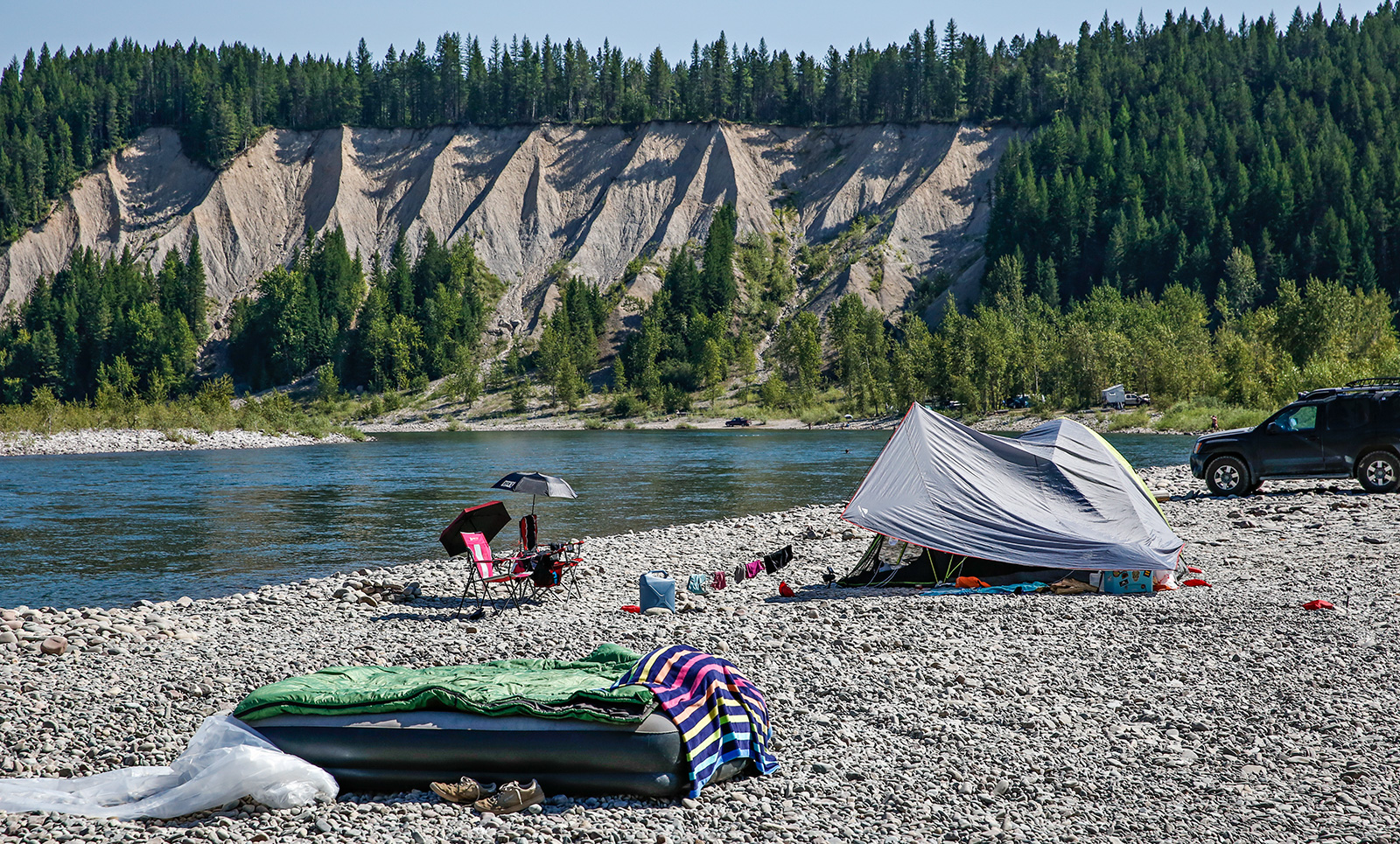Judge Denies Injunction to Prohibit Overnight Camping at Blankenship Bridge
Friends of the Flathead River nonprofit claimed the U.S. Forest Service violated the Wild and Scenic Rivers Act in response to increased recreational use
By Maggie Dresser
A federal judge has denied an injunction that would have prohibited overnight camping at the gravel bar southwest of the Blankenship Bridge on the Middle Fork of the Flathead River, a dispersed camping area that has seen substantial increased use over the past few years.
U.S. District Court Judge Donald W. Molloy on July 15 ruled that the U.S. Forest Service had not mismanaged the area and it was not in violation of the Wild and Scenic Rivers Act as the plaintiff, a group of property owners who formed a nonprofit called Friends of the Flathead River, claimed.
“Neither party disputes that there has been increased public use of the Blankenship Bridge and Gravel Bar over the last two years,” Molloy said in his opinion. “Rather, the parties dispute whether that increased use has created a significant problem.”
Friends of the Flathead River sought an injunction filed this year against the U.S. Forest Service, arguing that they violated the Wild and Scenic Rivers Act and the U.S. Forest Service Organic Act through the 2005 Travel Management Plan. They argued that the officials failed to monitor the motorized vehicle use area in accordance with the Wild and Scenic Rivers Act.
According to affidavits, property owners in the area say that the “scenic, geologic, and habitual qualities of the area are seriously threatened,” causing river pollution with human and food waste, emissions and sedimentation. Illegal campfire and fireworks have also been reported.
Friends of the Flathead River also argued that the current usage violates the 2005 Travel Management Rule, saying motorized vehicle use from Blankenship Bridge is generally limited to established roads due to terrain and vegetation. But Molloy said in his opinion that the travel rule allows motorized vehicles in the area.
According to court documents, Friends of the Flathead River requested a declaration that the U.S. Forest Service is in violation of the Wild and Scenic River Act because of its failure to timely issue a new Comprehensive River Management Plan (CRMP).
The Wild and Scenic Rivers Act applies wild, scenic and recreational designations to the Middle Fork of the Flathead River and the U.S. Forest Service said that the injunction would counter the recreational designation and would deprive the public the use of public lands.
The U.S. Forest Service argued that the injunction is “unwarranted and would be detrimental to the public” and that the plaintiff misinterpreted the Wild and Scenic Rivers Act regarding the CRMP, which are both broad in context.
Molloy said in his opinion that since the U.S. Forest Service increased patrols, installed portable toilets and posted vehicle route signage, that they adequately managed the area.
Molloy also ruled that Friends of the Flathead River misreads a deadline in the Wild and Scenic Rivers Act that “does not exist,” and they claim that the U.S. Forest Service violated the act because the CRMP is 37 years past due.